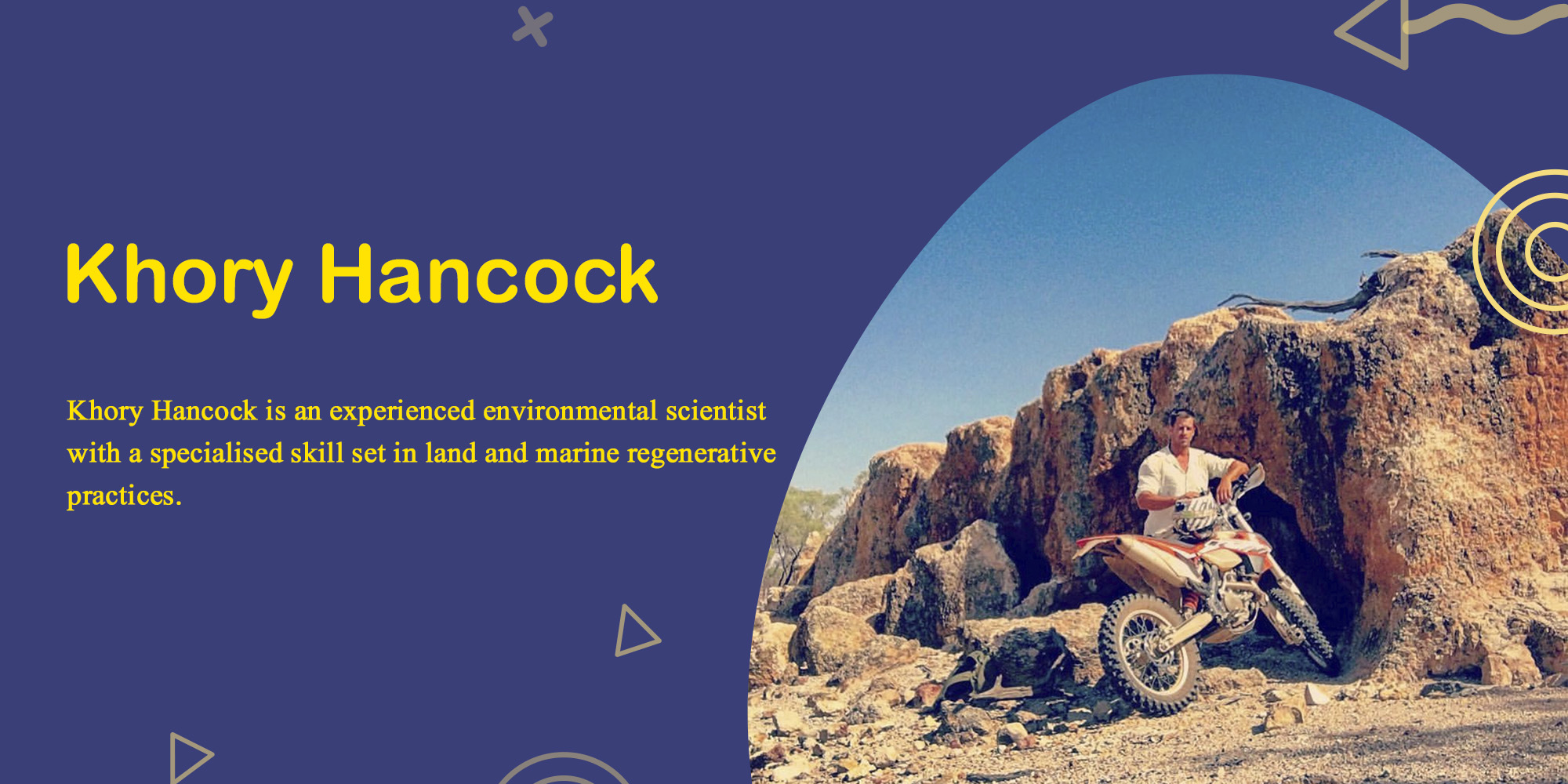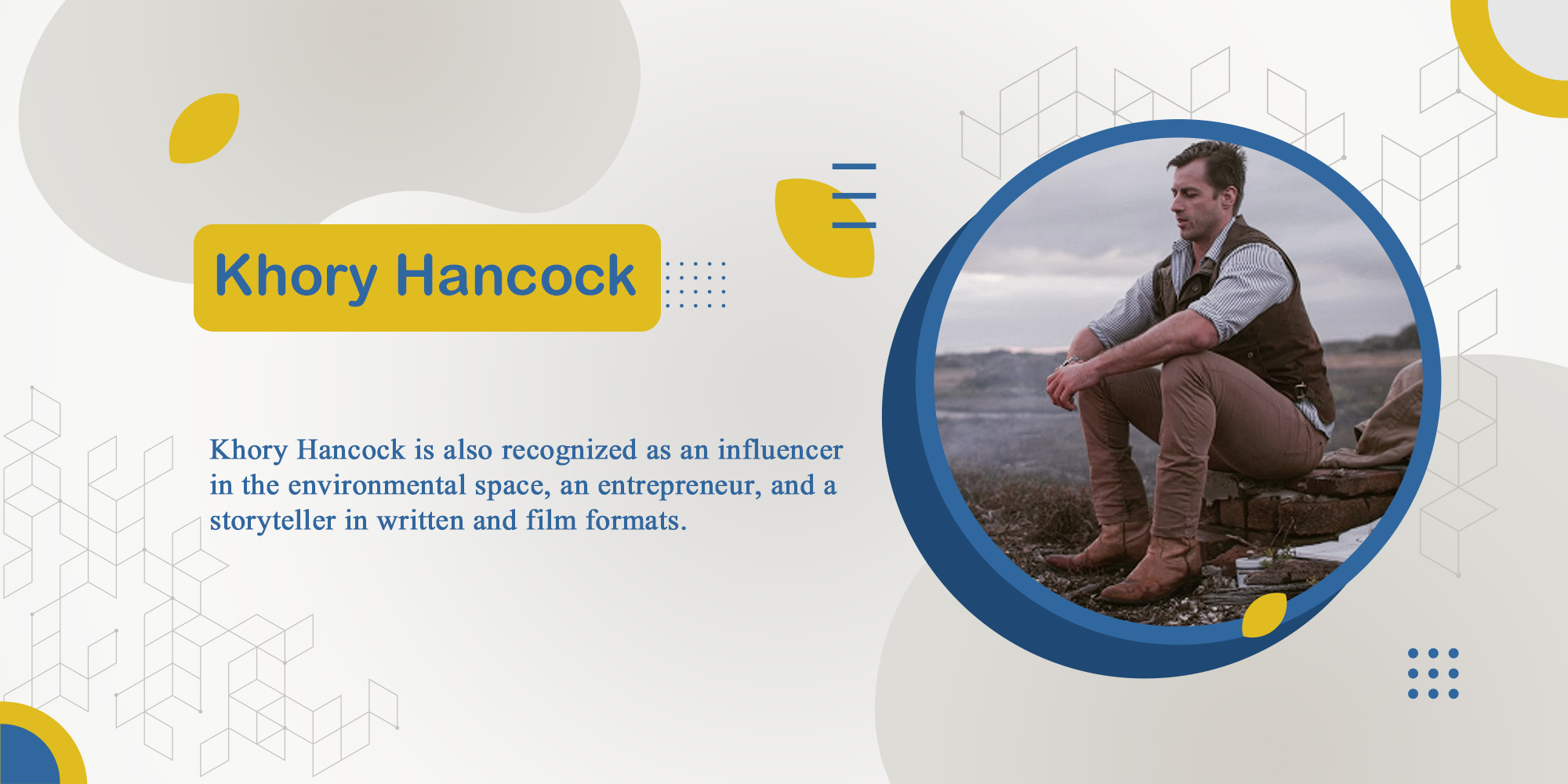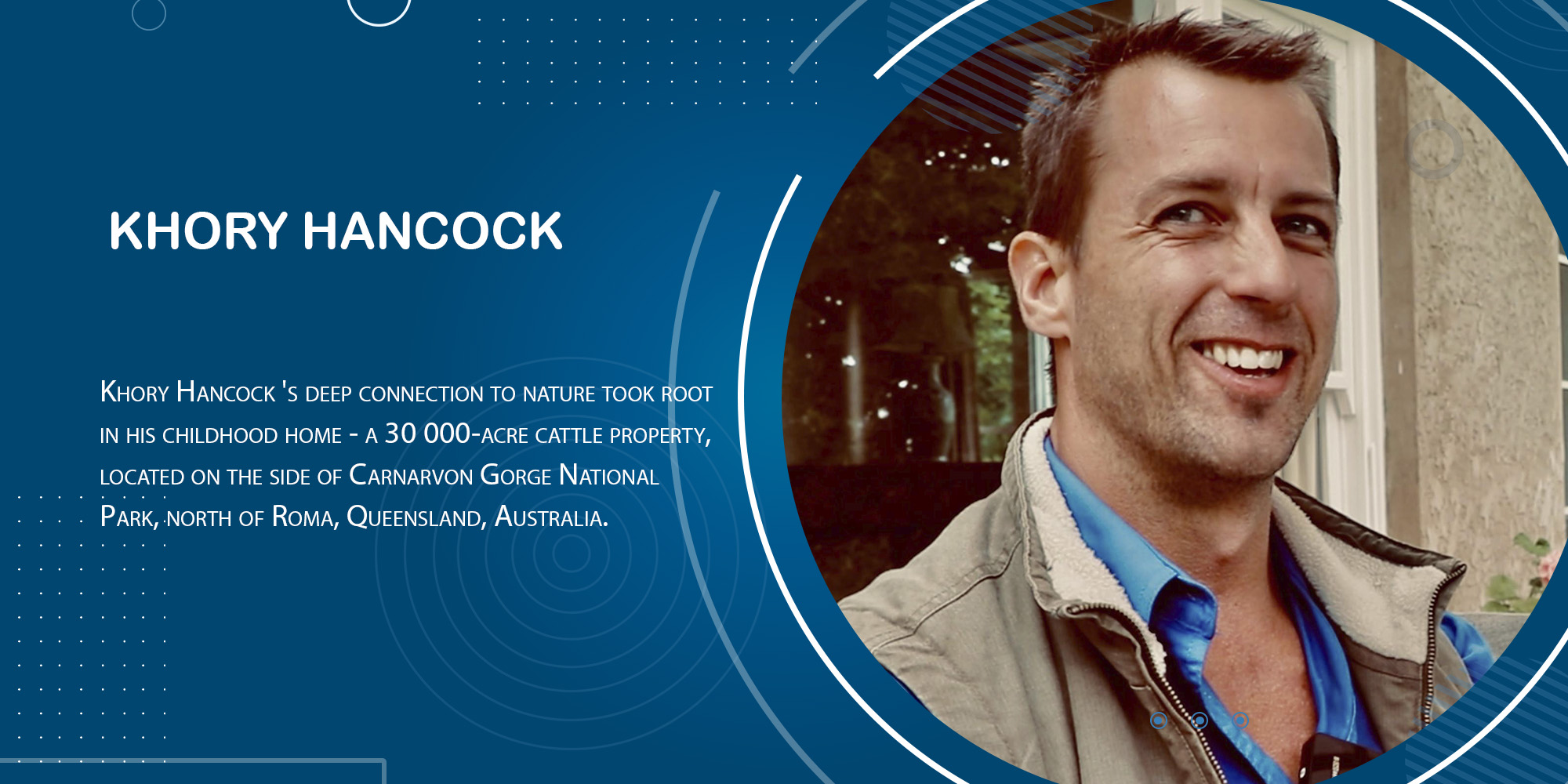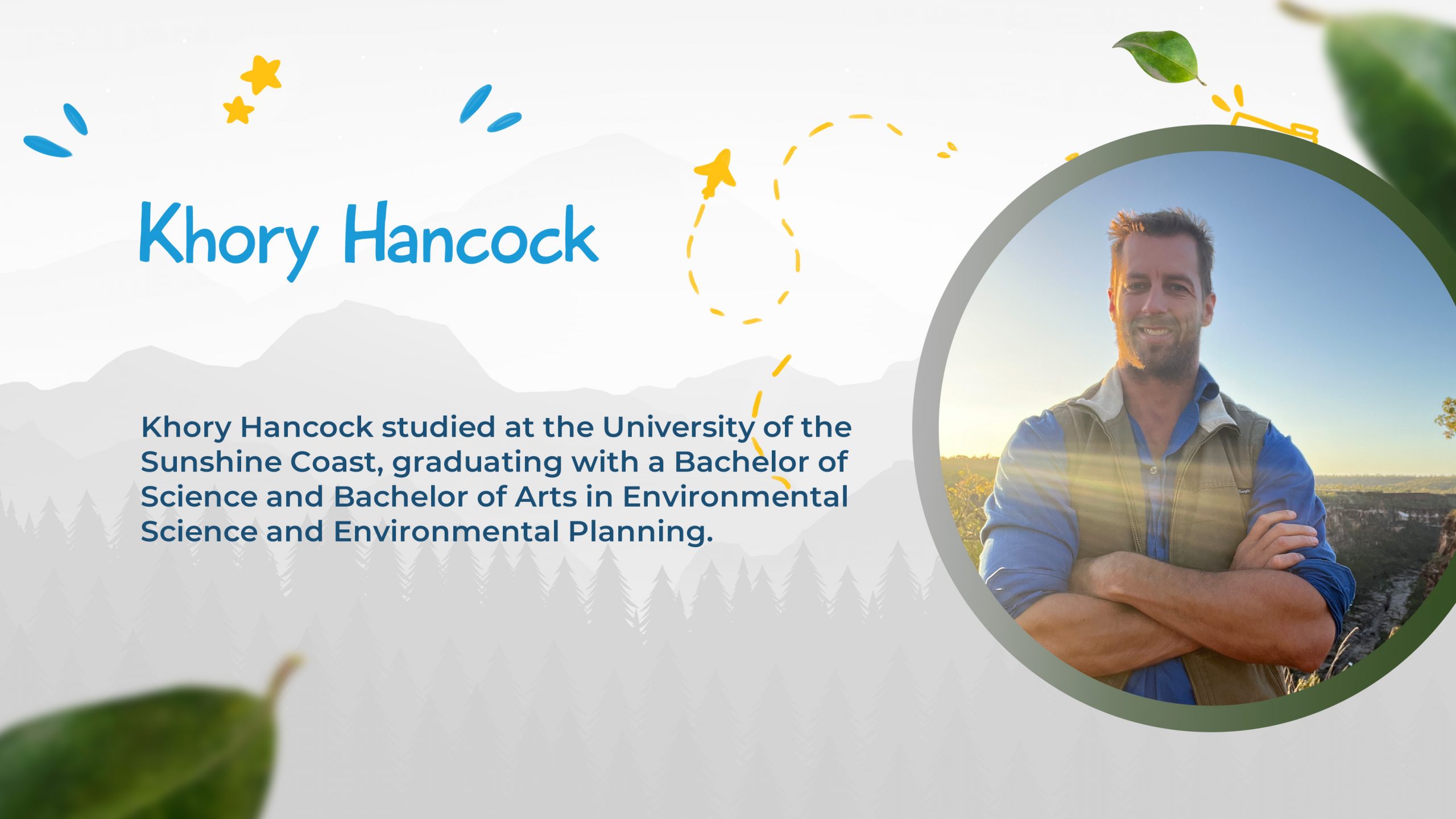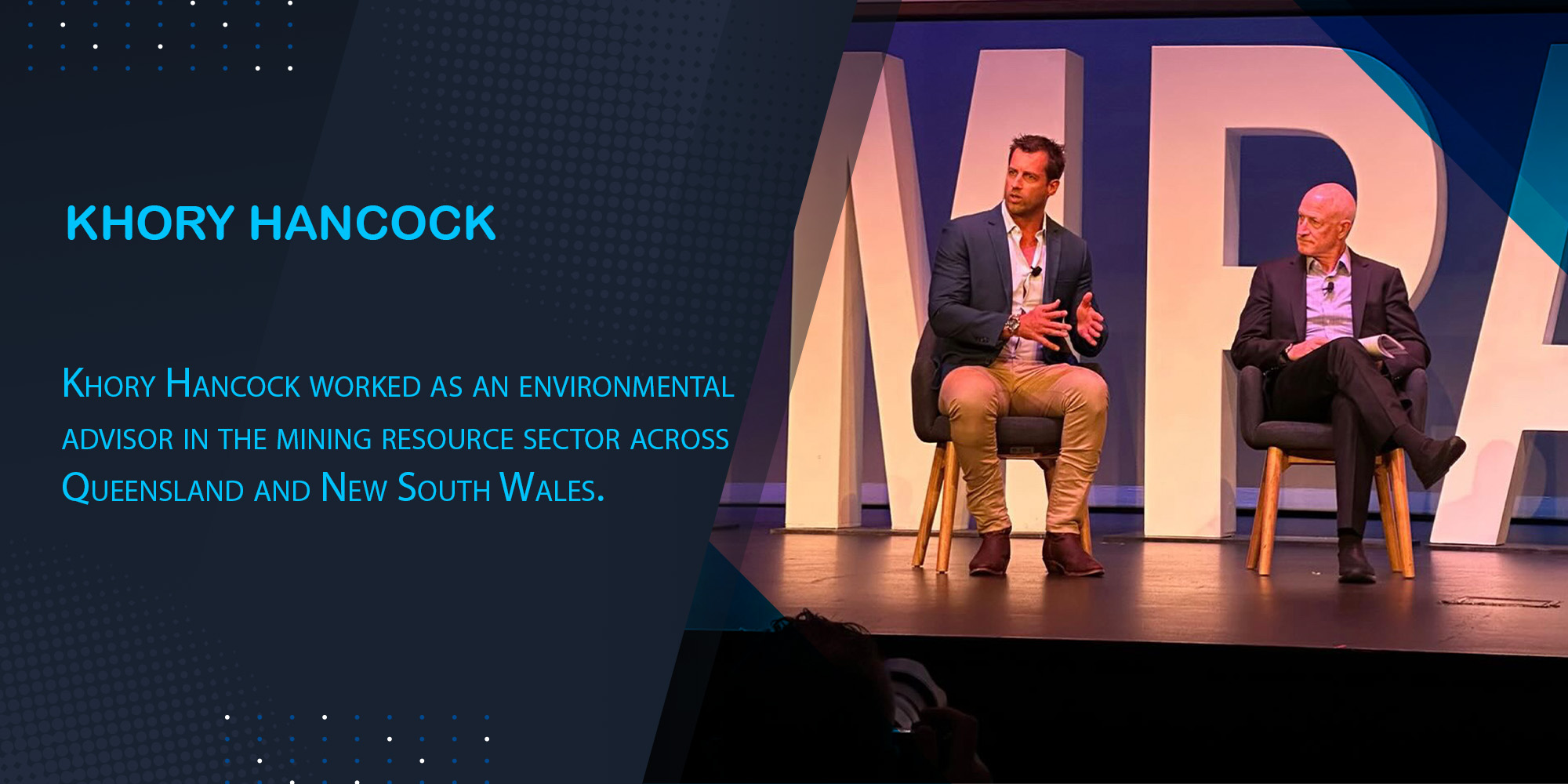Hello!
Khory Hancock
Environmental scientist

About Me
Khory Hancock is an Australian environmental scientist with over a decade of experience and a deep passion for nature. He has become an esteemed leader in the field, providing highly-specialized skills in land and marine regenerative carbon and biodiversity practices, as well as project management and auditing across industries. Additionally, he has been recognized as an influential figure in the environmental domain, an accomplished writer and filmmaker, and a successful entrepreneur with multiple businesses to his name.
Originally from Carnarvon Gorge National Park, north of Roma, Queensland, Hancock developed an early appreciation for nature from growing up on the sprawling 30,000-acre cattle property. This inspired him to specialize in environmental science directed at the agricultural industry and its related carbon farming processes.
During his 12 years at various blue chip companies - including mining resource sector roles across Queensland and New South Wales - Hancock gained expertise in quality assurance, safety regulations and management systems besides his core specialisation of carbon abatement for land management purposes. These comprise waste handling systems; water conservation measures; greenhouse gas reporting; data collection/reporting & auditing; and Sustainable Agriculture based on carbon farming initiatives.
Presently holding the role of Managing Director at a pioneering carbon project developer company that he founded himself, Khory is renowned for his vast knowledge base within the sector alongside his penchant for exploring cutting edge regeneration powered by technology.
Recent News

June 5, 2023
The Four Pillars of Environmental Science
Environmental science is a multidisciplinary field that explores the intricate relationship between humans and their environment. It encompasses many topics, including studying ecosystems, natural resources, pollution, climate change, and sustainable development. To better comprehend the complexities of this field, it is essential to understand the four primary branches of environmental science. Each unit offers unique […]

May 12, 2023
What are the three types of regenerative agriculture
Regenerative agriculture is gaining traction as a sustainable approach to farming that aims to restore and enhance ecosystems rather than deplete them. It focuses on principles such as soil health, biodiversity, and carbon sequestration, ultimately providing multiple benefits to the environment and food systems. In this article, we will delve into three types of regenerative […]

April 12, 2023
7 Carbon Sources
Carbon is an important chemical element in all living things lives. It exists in solid, dissolved and gaseous forms on Earth. Carbon continually flows between plants, animals and microbes; minerals in the Earth’s crust; and the atmosphere. This natural process is called the carbon cycle. Fossil Fuels Fossil fuels are a type of energy source […]

April 4, 2023
Carbon Farming – What Does a Carbon Farmer Do?
Carbon farming involves various regenerative techniques to increase soil carbon uptake and help reduce greenhouse gas emissions. These include cover cropping, reducing tillage and rotating diverse crops. These practices also increase soil humus content and improve water storage, erosion control and nutrient dynamics. The techniques can be adapted to the land’s topography, soil type and […]
